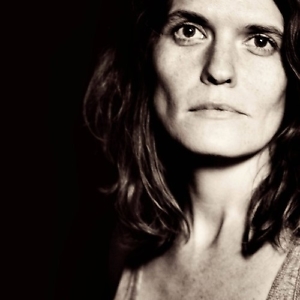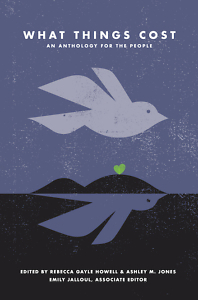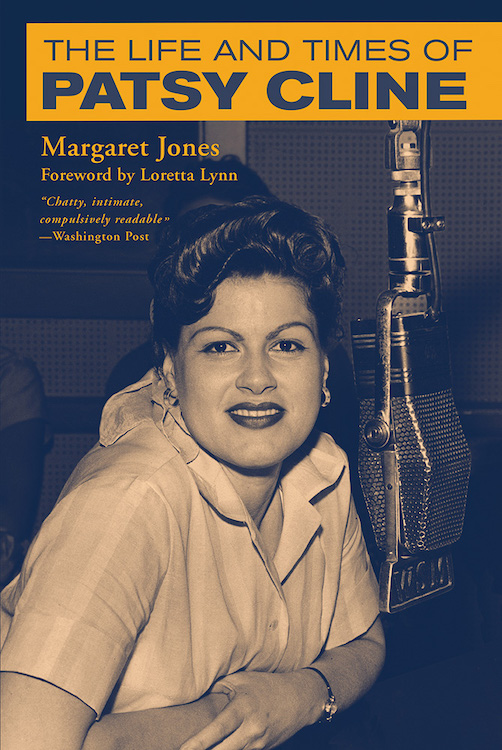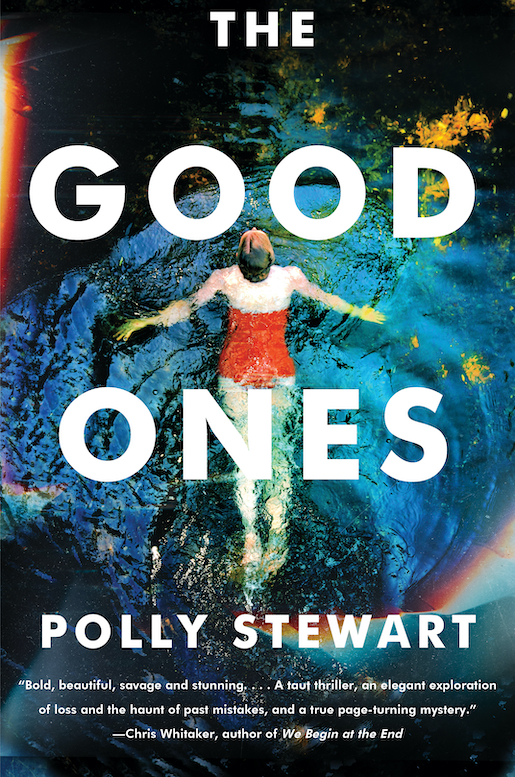Where We Labor
What Things Cost offers a moving tribute to our nation’s working poor
“Oppression is never abstract,” editors Rebecca Gayle Howell and Ashley M. Jones write in their introduction to What Things Cost: an anthology for the people. “It is in the detail of human living where we labor, be it joyful or tiring. Or both.”

What Things Cost is a landmark collection of writing dedicated to such detail. More than 100 poems and essays honor laborers everywhere, but especially those whose work has been devalued, exploited, or ignored — “generations of work stolen and extracted, the work of hands that built this country but never had the right to it.”
Proceeds from this book will support the Poor People’s Campaign, a movement first conceived by Dr. Martin Luther King Jr. during the final months of his life. Its current incarnation, formed in 2018, works toward King’s vision of “a multiracial coalition of the working poor.” With this shared purpose, What Things Cost and the Poor People’s Campaign make a fitting alliance.
The book’s powerful opening sections place the experiences and lives of marginalized voices — including those of immigrants, women, industrial workers, and agricultural laborers — in the foreground. Ruth Awad’s poem “My Father Dreams of a New Country” establishes this perspective, when the speaker addresses America directly: “When will you learn my name?”
José Olivarez’s “poem where no one is deported” and Javier Zamora’s “Second Attempt Crossing” both convey the precarious minefield of living undocumented in America. Ocean Vuong’s “The Gift” pays loving tribute to a relative who works at a nail salon. Faisal Mohyuddin’s “The Holiness of Our Fathers” describes the speaker’s father, under great financial stress, leaving Chicago for temporary construction work on the Nissan plant in Smyrna, Tennessee.

Curtis Bauer’s “Dispatch Out of a Language I Used to Speak” describes operating a grain bin auger to feed cattle, evoking the machine’s physical power through the structure and momentum of his language. Emily Jalloul, the anthology’s associate editor and a Ph.D. candidate at UT Knoxville, conveys the anxiety of growing up tending to her addict mother in “The Taking Apart.”
The lines of editor Ashley M. Jones’ poem “Hymn of Our Jesus & the Holy Tow Truck” are arranged in a circle, like the spokes of a wheel. Reading it leads us around a luminous wheel of image and memory, finding sacredness “flexed on the crossbar / of a rusty wrecker / on its way to the east side / of Birmingham, which is like Eden, / growing holy fruit.”
As Jones and Howell describe it, What Things Cost places at its center “the particular soul’s labor, pressed against the soulless powers that be.” A section titled “Blood and Bones” emphasizes the physical perils undertaken by the working poor. These pieces also offer a series of reckonings with the systemic forces in our culture and history that create harm for our nation’s most vulnerable populations.
Memphis poets Marcus Wicker (“Reparations Redefinition: Bond”) and Emily Skaja (“If Anyone Should Fight to Breathe”) both contribute to the collection’s many poems that confront our nation’s recent crises, including conflicts over police brutality, callous decision-making during the global pandemic, and the toppling of Jim Crow-era statues. Wendell Berry’s “Questionnaire” asks what we are willing to trade for false notions of safety and righteousness.
Nabila Lovelace’s “Ars Poetica” is a haunting list poem that names many items from our everyday lives that are made with prison labor, an ignored sector of American labor. Lovelace asks:
everything we buy supplies metal for cages
aren’t we ready for something else?
Subsequent sections of the book depict entanglements between laborers and land, as well as the hazards and vulnerabilities surrounding labor related to our food supply. Crystal Wilkinson’s poignant “O Tobacco” entwines the sensory details of Kentucky tobacco farming with warm childhood memories. Nashville poet Ciona Rouse’s “Yes/And” highlights how differently two people who are otherwise close can interpret the same grove of trees.
 Layli Long Soldier’s arresting essay, “38,” sheds light on the mass execution of the Dakota 38, whose rebellion sprang from years of starvation on their ever-shrinking reservation. Martin Espada’s “Alabanza: In Praise of Local 100” memorializes the kitchen staff of Windows on the World, killed during the attack on the World Trade Center. Diane Gilliam’s poem, “In Line,” depicts an encounter that speaks to the fraught moments of connection and tension that occur daily in our nation’s grocery stores.
Layli Long Soldier’s arresting essay, “38,” sheds light on the mass execution of the Dakota 38, whose rebellion sprang from years of starvation on their ever-shrinking reservation. Martin Espada’s “Alabanza: In Praise of Local 100” memorializes the kitchen staff of Windows on the World, killed during the attack on the World Trade Center. Diane Gilliam’s poem, “In Line,” depicts an encounter that speaks to the fraught moments of connection and tension that occur daily in our nation’s grocery stores.
The anthology ends with moving testaments to the finiteness of life and the irreplaceable worth of each person’s contribution. In his essay, “A Crowded Table,” Silas House recounts the significant but imperfect evolution in how his rural Kentucky family relates to lives that differ from theirs, including his own life as a gay man.
Editor Rebecca Gayle Howell also reflects on a complicated working-class childhood in “My Mother Told Us Not to Have Children”: “We fought to eat and fought each other because // we were tired from fighting. We had no time / to share. Instead our estate was honesty, // which is not tenderness.”
Nikki Finney’s riveting long poem, “At War with Ourselves: The Battle of and for the Black Face Boy,” grounds contemporary killings of young Black Americans like Tamir Rice in the same storm of racist violence that led to the Civil War. Joy Harjo’s “I Give You Back” voices the speaker’s profound personal need to let go of fear engendered by a legacy of racist injustice: “You are not my blood anymore.”
Two poems express moments of unexpected thrill after getting fired. In Debora Kuan’s “The Night after You Lose Your Job,” the speaker is knocked out of her routine and reminded of the tremendous exchanges that take place among us outside of any transactional economic ethos. Dorianne Laux’s “Waitress” finds its newly unemployed speaker “running, breathing hard, thinking: / This is the grand phenomenon of my body. This thirst / is mine. This is my one and only life.”
What Things Cost offers a hard-earned generosity of spirit, reflecting the sheer enormity of the working poor’s contribution to everyone’s lives. From the authors’ diversity of experience and seemingly endless variety of aesthetic and formal expression, we recognize all that’s made possible by the persistent, thrumming pulse of the world at work.

Emily Choate is the fiction editor of Peauxdunque Review and holds an M.F.A. from Sarah Lawrence College. Her fiction and essays have appeared in Mississippi Review, storySouth, Shenandoah, The Florida Review, Rappahannock Review, Atticus Review, Tupelo Quarterly, and elsewhere. She lives near Nashville, where she’s working on a novel.


